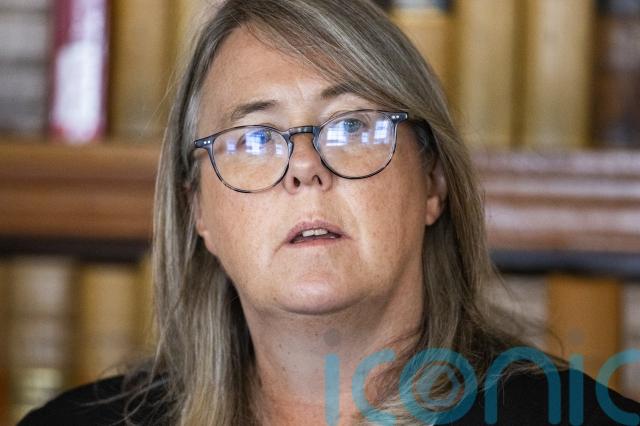
Northern Ireland’s Lady Chief Justice has said she is reassured there is “momentum” towards improving transparency at the courts.
Dame Siobhan Keegan was speaking during her annual address following the official opening of the new legal year at the Royal Courts of Justice in Belfast.
She said her priorities last year included enhancing the public’s understanding of the criminal justice process, particularly around sentencing to build trust and confidence.

The Lady Chief Justice is in favour of legislation which will allow for broadcasting in courts in Northern Ireland, placing the jurisdiction on a footing to that in England, Wales and Scotland.
In the absence of that legislation, she said in June she launched a consultation on a pilot to allow media to attend and report from family courts.
“It would allow participating registered journalists to apply for a transparency order permitting them to attend in person and report on what they see in specified cases,” she said.
“This would also obviously be subject to privacy issues, principles of anonymity and consent, but I do intend to run the pilot for a year and keep it under review to identify its utility and where improvements can be made.”
She added that work on transparency across the courts generally will be greatly assisted by the findings due following Justice Minister Naomi Long’s consultation on the broadcasting of Court of Appeal and Crown Court judgments as well as sentencing remarks with legislation proposed to follow.
“While the pace of change has not been as swift as I would have hoped – it means that we are still behind other jurisdictions – I am reassured that there is a momentum to looking at this important issue in terms of the broadcasting of courts, and I hope by next year we will have some tangible results.”
However the Lady Chief Justice also emphasised that while government sets sentencing legislation, it is the function of the independent judiciary to apply the current law.
“Where appropriate, the judiciary can also define parameters and set guidelines for sentencing courts, and when doing so it is important that our independence, together with our expertise, both as individuals and collectively, is respected,” she added.
“This process of our senior courts setting parameters and giving guidance has been the practice in this jurisdiction for many years. It is a practice that I am committed to maintaining, and also improving where appropriate.”
She also cautioned that while consistency in sentencing is desirable, it “can never be absolute”, pointing to the variety of personal and factual circumstances in each criminal case that comes before the court.
“In this jurisdiction, sentencing does take place within a framework that takes account of legal parameters, but which also takes account of what is just and appropriate in a particular case, looking at aggravating and mitigating circumstances,” she said.
Subscribe or register today to discover more from DonegalLive.ie
Buy the e-paper of the Donegal Democrat, Donegal People's Press, Donegal Post and Inish Times here for instant access to Donegal's premier news titles.
Keep up with the latest news from Donegal with our daily newsletter featuring the most important stories of the day delivered to your inbox every evening at 5pm.